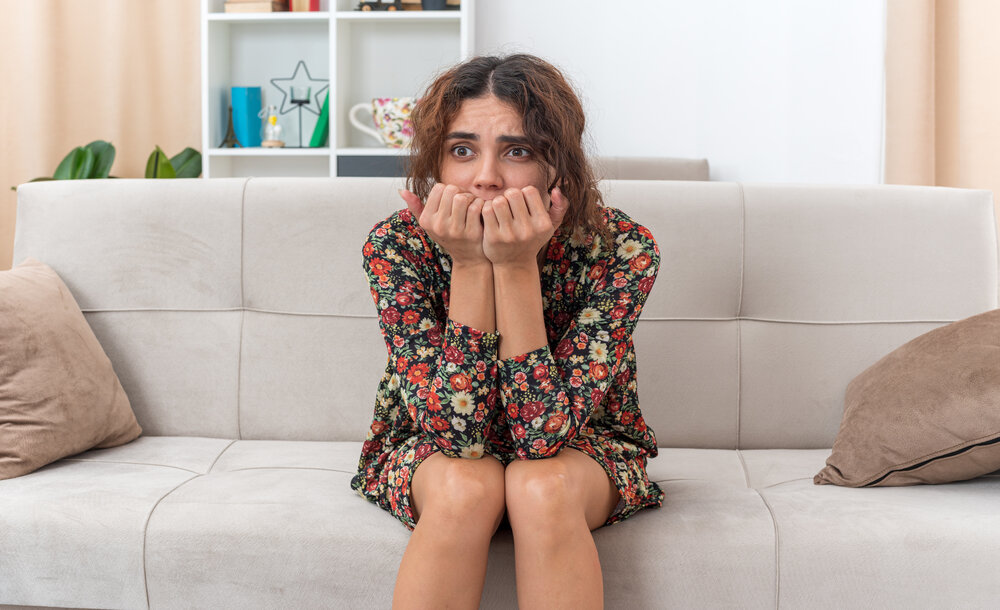If your favourite athlete fails in a crucial moment, you may describe it as “choking”. However, a more accurate way to describe this is as a manifestation of performance anxiety. The crucial aspect to note is the presence of anxiety. As someone who has written extensively about fear, stress and anxiety, it is important to understand that anxiety is necessary for human survival. However, it can develop into a diagnosable disorder when it becomes dysfunctional.
Performance anxiety refers to experiencing excessive anxiety before and during an event that triggers you. Among other things, it could be participating in sports, having sex, or taking a test. Regardless of the situation, anxiety is always present.

Causes Of Performance Anxiety?
Anxiety can interfere when you aim to perform your best in a particular situation. It causes individuals to obsess over the event’s details, which can confuse the prefrontal cortex (PFC), the brain region responsible for directing the process. When anxiety intensifies, the PFC becomes overactive, challenging routine tasks or actions.
This scenario poses a psychological threat because it feels like a self-fulfilling prophecy.
- You experience anxiety regarding a particular situation or event
- The feeling of anxiety activates your brain
- Once activated, your ability to perform well gets impaired
- Consequently, you may perceive this as evidence of your inadequacy in that particular task or activity.
Subsequently, when faced with stressful and overwhelming future situations or events, more anxiety can be triggered based on the belief that you cannot perform the task effectively. Now, let us explore some self-help techniques for dealing with various types of performance anxiety.
Read More – HOW TO DEAL WITH FAILURES
3 Tips to Overcome Performance Anxiety
1. Sexual Performance
Many stigmas often accompany sex, and a significant factor contributing to this issue is negative body image. Men, in particular, are frequently afraid of being unable to maintain an erection and satisfy their partner, but they may be hesitant to talk about it. Here are some recommendations:
- Engage in open communication with your partner
- Remain receptive to exploring the complete spectrum of sexual possibilities
- Permit yourself to be fully present with the physical sensations
- Be patient with yourself
2. Stage Fright
The symptoms of stage fright are similar to the physical manifestations of being in mortal peril, such as sweaty palms, hyperventilation, trembling body and voice, elevated heart rate, nausea, and more. Here are some self-help suggestions to consider if you know you will be in the spotlight:
- Incorporate self-care practices into your routine regularly, especially in preparation for the event
- Visualization of success
- Restrict the consumption of anything that could affect your performance (coffee, alcohol, etc.)
- Practice and prepare, but not to the point of obsession
- Breathing exercises
It is essential to remember that anxiety is a masterful deceiver. Thus, it would help if you focused on your inner dialogue. Quieting the negative inner voice and replacing it with positive affirmations is critical.
3. Other Forms of Performance Anxiety
Performance anxiety can manifest in various scenarios, such as athletic events, exams, job interviews, etc. It can overlap with a generalized anxiety disorder (GAD). Consequently, self-help techniques for performance anxiety closely align with those for GAD. As mentioned earlier, relaxation techniques, self-care practices, and positive self-talk are crucial.
Read More – Women’s Mental Health across Life Span
Anxiety is a Sometimes A Diagnosable Mental Health Disorder
The most significant action you can take is to schedule an appointment with a qualified mental health professional. Anxiety is the most common and prevalent mental health disorder worldwide, and proven and effective treatments are available for GAD and the various types of performance anxiety mentioned earlier.
You do not have to endure a life consumed by anxiety. Engaging in therapy can assist you in uncovering the underlying causes of your stress and anxiety and developing new coping mechanisms and behavioural patterns. If performance anxiety disrupts your life, I encourage you to contact me. Let us collaborate to help you regain control through anxiety therapy.
Can you overcome performance anxiety?
Whether you are experiencing situational anxiety or generalized anxiety disorder, it is possible to manage performance anxiety. Engaging in exposure therapy, regularly practising relaxation techniques, using positive self-talk, and seeking professional guidance are all effective methods for reducing the impact of performance anxiety.
